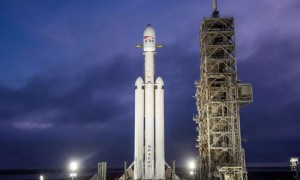"It will also provide reliable technological support for research in other fundamental science fields like relativity and quantum mechanics," he added.
Quantum entanglement is a phenomenon in which two or more entangled particles can affect each other simultaneously regardless of the distance between them. Albert Einstein called this interaction "spooky", but scientists are trying to use it to encrypt and send messages.
"This is the most secured method of communication because any eavesdropper will disrupt the entanglement and be detected," said Wang Jianyu, a CAS researcher and the system commander of Micius.
Quantum communication will have significant applications in finance and military, where security is paramount, though it is still too early to say whether it will replace conventional methods, he added.
The accurate transfer of photons between the sender and receiver is not easy, since the optical axis of the satellite must point precisely toward those of the telescopes on the ground. This means there is only about five minutes to experiment each night.
"This requires extremely precise measurement," said Wang. "Receiving the entanglement is like catching coins dropped from a plane with a piggy bank."
Moreover, quantum entanglements cannot be amplified like radio signals, so scientists still need to overcome disturbances when delivering photon entanglement over thousands of kilometers.
Sophisticated devices called "quantum repeaters" could in theory be chained together to receive, store and retransmit the quantum data across longer distances, much like a cell tower, but this task is so difficult that such systems remain largely theoretical.
"It will still take more than a decade for the technology to reach the market," said Pan.
Other countries including the United States, the United Kingdom, Canada, Austria and Singapore are also pursuing quantum communication. many of them are interested in cooperating with China.
"Micius and the quantum communication fields will be good platforms for large-scale, cross-disciplinary scientific research around the world," Pan added.







